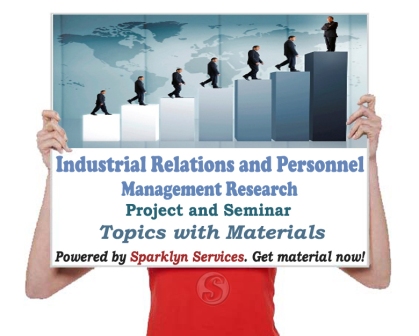Introduction
1.1 Background Of The Study
The current volatile business environment and intense competition call for strategic and pragmatic approach towards employee development, engagement and effective utilisation. Contemporary organisations, especially the service industries, need to find better approach towards earning the commitment, motivation and loyalty of the employees which would translate to corporate efficiency (Akinyemi, 2012).
Thus, the role of team building in shaping the outcome of an organization cannot be over-emphasized in this era of increasing competition, informed by an ever-changing corporate environment where managers are compelled to make optimum use of organizational resources in other to remain in business as well as being relevant (Aronu and Bilesanmi, 2013).
Team building is an important topic in the current business climate as organizations are looking to team-based structures to efficiently improve their productivity, profitability and service quality. Thus, managers and organization members universally explore efficient and effective ways to improve business results and profitability. Many view team-based, horizontal, structures as the best design for involving all employees in creating business success. Team-based corporate organisation strives to improve results for customers by way of efficiency (Fapohunda, 2013).
Effective team building is essential to the success of any business. As “no man is an island,” the positive effects of productive team building can energize an entire organization, just as the negative effects of a lack of teamwork can cripple an organization. The nature of the workplace has changed over the last several decades as organizations have shifted to team building work structures (Sheikh, Hafiz and Murad, 2011).
Team building involves a wide variety of activities, presented to organizations and aimed at improving team performance. It is a philosophy of job design that sees employees as members of interdependent teams rather than as individual workers. Team building is an important factor in any environment, its focus is to specialize in bringing out the best in a team to ensure self development, positive communication, leadership skills and the ability to work closely together as a team to achieve corporate objectives in an efficient manner (Fapohunda, 2013).
A team as a group of individuals work together to produce products or deliver services for which they are mutually accountable. In this case, team members share goals and are mutually held accountable for meeting them, they are interdependent in their accomplishment, and they affect the results through their interactions with one another. Because the team is held collectively accountable, the work of integrating with one another is included among the responsibilities of each member (Mahfuz, 2011).
Whether team building affects corporate efficiency as well as employee’s performance positively or negatively in practice for the typical firm is an empirical question that remains open. The undertaking of this study will therefore explore the effect of team building on corporate efficiency in the pharmaceutical industry with a special reference to SKG-Pharma.
1.2 Statement Of The Problem
Many organizations in Nigeria do not consider the application of team building in managing an organisation. Several organizations especially the current service sector in Nigeria have witnessed a number of industrial conflicts and worker agitations which has led to confrontations between management and staff with some very dire consequences. All these have arisen as a result of poor team building and employees feeling dissatisfied about some decisions that have been taken by management and board of the various organizations without any active participation of the staff body and such decisions have been viewed by employees as detrimental to their welfare, long term commitment and loyalty which are held as sine qua non to corporate efficiency, growth and survival.
Low teamwork and Non-participation of employees in the decision-making process could cause employees to be demoralized, lacking impetus for efficiency, job dissatisfaction and prompt voluntary turnover intention among employees all of which will eventually result to lost of productive time, low productivity that would adversely affect the fortunes of the organizations.
Several studies such as Jianguo Du (2014), Ploch et al (2005) and Arrey (2014) have been carried out to examine the effect of team building on corporate efficiency; but none of these studies have attempted to relate it to SKG-Pharma which gap the propose study seeks to fill by relating team building and corporate efficiency in the pharmaceutical industry with a special reference to SKG-Pharma.
1.3 Objectives Of The Study
The study will be conducted with the following objectives:
- To explore the link between employee team building and corporate efficiency in the pharmaceutical industry.
- To investigate the effect of team work on employee job commitment.
- To examine the relationship between employee team building and job satisfaction.
- To find out the effect of team building on corporate competitive advantage
- To provide plausible recommendations on how to improve corporate efficiency in the pharmaceutical industry.
1.4 Research Questions
This study will be guided by the following research questions:
- Does team building affect corporate efficiency in Nigeria pharmaceutical industry?
- What is the relationship between team work and employee commitment?
- How is team building related to employee job satisfaction?
1.5 Research Hypotheses
The following hypotheses will be tested in the course of the study:
Hypothesis 1
- Ho; There is no significant relationship between team building and corporate efficiencyin the Nigeria pharmaceutical industry.
- HI; There is a significant relationship between team building and corporate efficiencyin the Nigeria pharmaceutical industry.
Hypothesis 2
- Ho; There is no significant relationship between team work and employee commitment.
- HI; There is a significant relationship between team work and employee commitment.
Hypothesis 3
- Ho; Team building is not significantly related to employee job satisfaction.
- HI; Team building is significantly related to employee job satisfaction.




